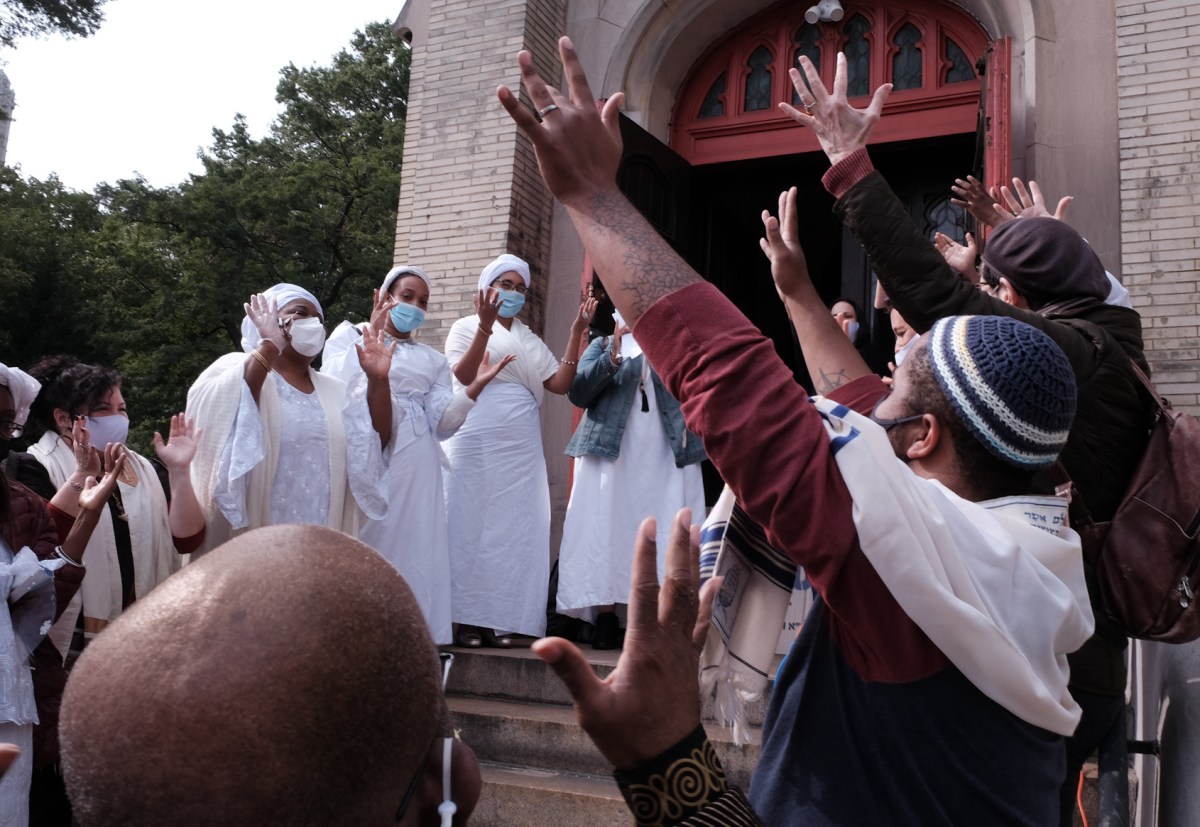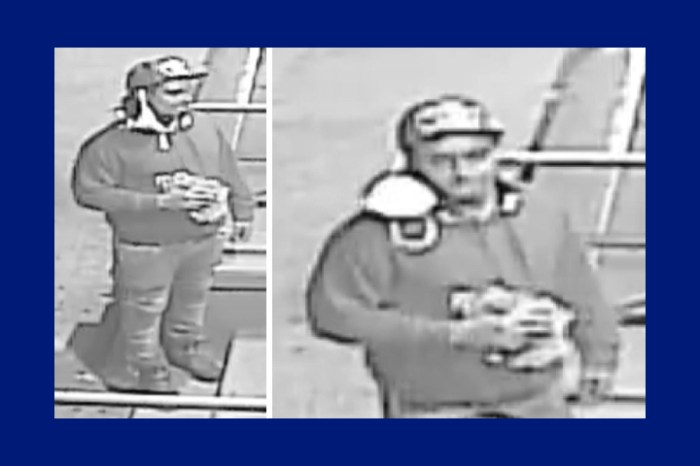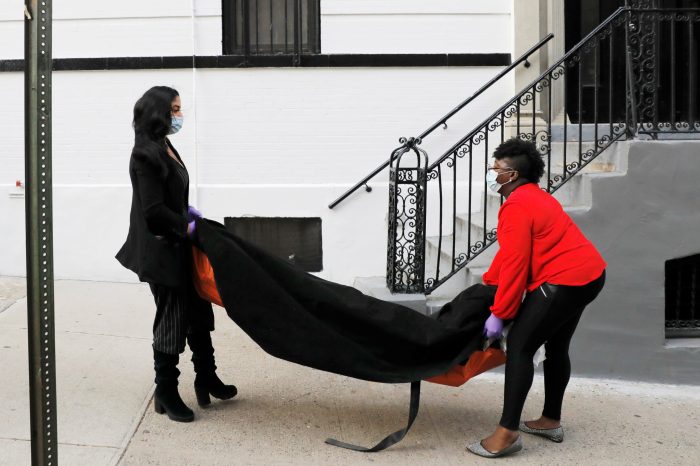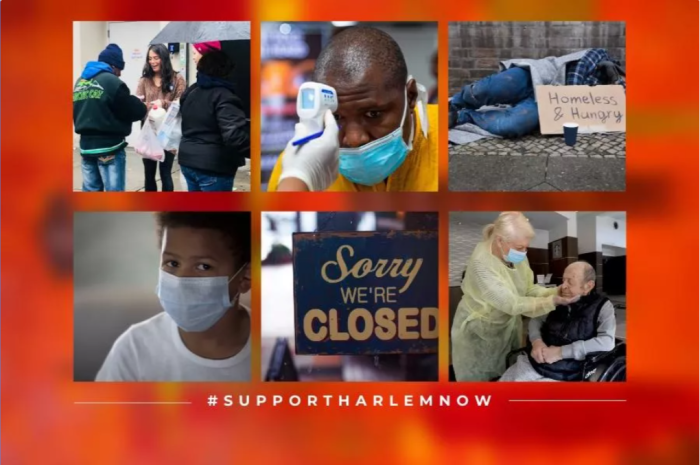By Tequila Minsky
On Sunday, members of downtown-based Lab/Shul met-up with those from St. James Presbyterian Church at W. 141 St. in Lab/Shul’s tradition of inclusion, relevancy, ritual and the arts.
Gathered outside the steps of St. James, socially distancing on the sidewalk, the gathered held an all-faith Ritual Rally for human dignity, celebrating Indigenous People’s Day and wrapping up the autumn burst of Jewish holidays with Simchat Torah —the conclusion of the annual cycle of Torah reading.
Starting by observing the ceremonial tradition of African traditional religions, Rev. Derrick of St. James paid homage to the ancestors thru the ritual of pouring libation.
Yoruba Priestess Joyce Adewumi’s rain invocation called on the ancestors of justice and peace, an invitation for the rains to come—to help start again—the cycle of Torah, the cycle of creation and the moral heartbeat of this country.
Rabbi Amichai Lau-Lauvi explained briefly the physical nature of the Torah and how it is handwritten on parchment in segments and a pointer is used when reading. And with sanitized and gloved hands, the whole year’s length of Torah unscrolled, together the assembled held it, the oval of participants filling the sidewalk.
Rabbi Lau-Lauvi walked the scroll, giving a very abridged version of the “Five Books of Moses” story, starting with the beginning of earth and ending with Moses’ death before entering the Promised Land. In the Simchat Torah tradition, one starts to read from the beginning again.
Ritual leader Naomi Less of Lab/Shul says, “We cast a circle as the ancient Hebrew words of death and life were chanted from the end of Deuteronomy to beginning of Genesis.”
Less notes how all gathered —socially distant in-person and on-line, were multi-faith, multi-ethnic, multi-generational, and multi-race. All were rededicating themselves to talking back to injustice and systemic oppression through the ancient, archetypal narratives of Torah.
Reflecting on the day she says, “This was truly a sight to witness.”
She also comments, “Being the day before Indigenous People’s Day, we called upon all assembled to continue the work of dismantling systems of oppression – healing ancient wounds and restoring more love in our world.”
Invited guest, Harlem-resident Albert Depas understands the uniqueness of the afternoon, “I am happy to have been part of this rare interfaith Ritual Rally for human dignity of Yoruba, Protestant and the Jewish faiths coming together to honor our common humanity. Adding, “I am also in awe of having had the privilege to witness the unscrolling of the Torah and touch it.”
Less explains how as is their tradition each year they create a kind of organic poem. “We choose via ‘tarot’ five words – one word from each book of the scroll – to be a blessing and a charge for the year ahead.”
English translation of the Hebrew for the words picked Sunday afternoon are: in the earth/mother, water, as a vision, he (she/they) will not die, the stars of the heavens.
“May this blessing continue to resonate as we move through the seasons.”


















